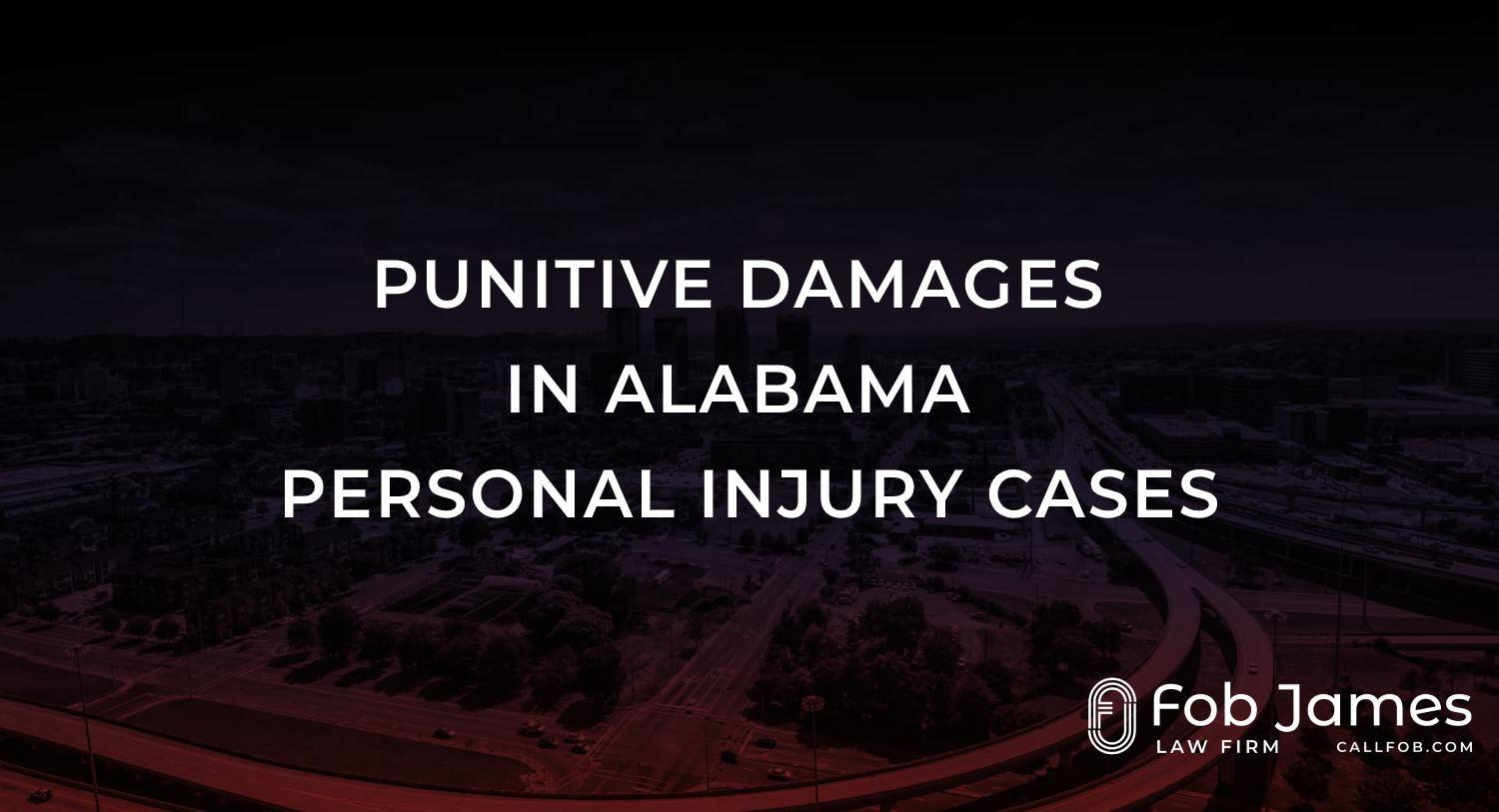
The injured party in an accident has the right to demand damages from the at-fault party.
These damages can include medical costs, pain and suffering, and lost wages.
Most damages represent compensatory damages—payments directly trying to heal your financial injuries.
Punitive damages are an additional, particular type of damages you might also be able to demand in specific circumstances.
What Are Punitive Damages?
The Alabama punitive damages statute explains that punitive damages may be available where, “it is proved by clear and convincing evidence that the defendant consciously or deliberately engaged in oppression, fraud, wantonness, or malice with regard to the plaintiff.”
However, in the case of a wrongful death action, none of these factors need to be present for punitive damages to potentially apply.
The law limits punitive damages, so they are only awarded when warranted.
Punitive damage examples where they would likely be appropriate include a driver purposefully hitting another person with their car in anger or a used car salesman selling a car to someone when they knew it had faulty brakes.
In these cases, the driver would be acting maliciously towards the person they hit and the car salesman would primarily be acting with fraudulent intent towards the buyer of the car.
What Is the Purpose of Punitive Damages?
Punitive damages have the dual purpose of punishing the defendant for their reprehensible actions and deterring others from performing similar clearly wrongful acts.
Courts reserve punitive damages only for cases where the defendant clearly acted egregiously.
Are Pain and Suffering Punitive Damages?
Pain and suffering damages are different from punitive damages.
Damages for pain and suffering are compensatory—they compensate a victim for the physical, emotional, and mental pain they had to go through due to the accident.
Pain and suffering damages can certainly coexist with punitive damages depending on the incident, but the fundamental difference is the compensatory nature of pain and suffering damages.
On the other hand, punitive damages have no relationship to the damages suffered by the plaintiff.
They are intended to punish and deter the defendant and anyone else who would think to act similarly.
As such, courts only award punitive damages in certain cases.
When Are Punitive Damages Awarded?
Courts award punitive damages only when the at-fault party’s actions involved oppression, fraud, wantonness, or malice.
- Oppression is a conscious disregard of another person’s rights;
- Fraud is intentional misrepresentation or deceit where withholding the fact causes another person injury;
- Wantonness is conscious disregard for the well-being of others; and
- Malice is a deliberate act with evil purposes, such as intentionally injuring another person or their property.
Even if you believe the defendant acted with one of these mental states, you still need to prove it with clear and convincing evidence.
How Much Punitive Damages to Ask For
If you have a case where punitive damages are appropriate, you must calculate how much to ask for.
A punitive damages calculation depends on how malicious the defendant’s act was and how bad your injury was.
Alabama law limits punitive damages depending on your type of claim. Your personal injury attorney can help you with the punitive damages calculation.
Contact Fob James Law Firm, LLC Today
If you suffer an injury in a car accident and you need cash, don’t hesitate to reach out to our attorneys today.
Fob James Law Firm, LLC has helped victims for over 40 years and counting. We will devote our personalized care and respect to you with our 24/7 contact policy.
Call us today, and we can fight to help you get the compensation you need.
